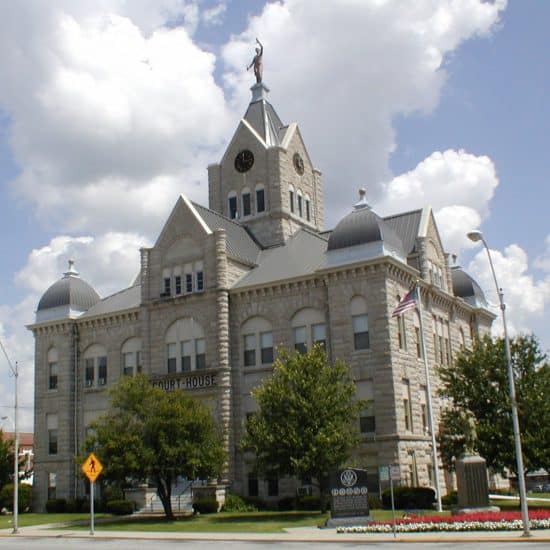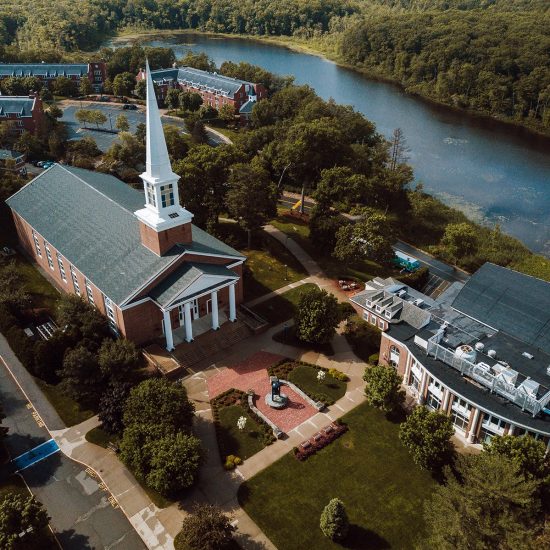Jefferson City — As the legal battle against it reaches the four-year mark, Missouri Baptist University will ask the court to intervene to help the parties reach a voluntary solution.
MBU has filed a motion to ask Cole County Circuit Court Judge Thomas Brown to appoint a mediator to help solve the ongoing dispute between the university and the Missouri Baptist Convention. The judge will consider the motion at a hearing at 1 p.m. on Aug. 7 in Jefferson City.
In 2000, The Baptist Home changed its charter to allow the institution to elect its own trustees. The following year, MBU, Word&Way, Windermere Baptist Conference Center and the Missouri Baptist Foundation took similar actions. In the past, messengers to MBC annual meetings elected trustees for the boards.
The convention filed legal action against the five entities on Aug. 13, 2002, in an effort to force the institutions to rescind the charter changes and to regain control of the trustee election process.
"The university is interested in trying to serve all Baptists," MBU attorney Clyde Farris said. "We're going back for the fourth amended petition…. It just seems like an appropriate time to see if…mediation could solve the issues.
"We hope the messengers will be aware of the university's desire to work with all Baptists to see this mediated."
Lawyers for the other entities have not yet filed similar motions but, depending on the judge's response, may join the university's motion.
Attorney Lawrence Tucker said the Foundation likely would verbally agree on Monday when Farris presents it.
Jim Shoemake, attorney for Windermere, The Home and Word&Way, said the three would consider how to respond based on arguments presented in court.
But will the convention consider the option?
Messengers to the 2001 MBC annual meeting authorized formation of a legal task force and asked the convention to pursue whatever means necessary to restore the five entities to their former relationship.
Early in 2002, legal task force leaders mentioned the possibility of settling the issues through binding Christian arbitration. But convention leaders and agency heads understood the term differently.
At the time, both sides said they wanted to find a process through which underlying issues — Baptist polity and control — could be dealt with, as well as legal issues.
Although legal task force leaders said they wanted to discuss those issues, they asked agency heads to sign an agreement that only included a binding Christian arbitration option. The agreement did not mention mediation as a first step, even though the firm the MBC planned to use for the process, Peacemakers, recommends parties begin with conciliation or mediation before moving to binding arbitration.
In mediation, a third-party mediator helps disputing parties determine a fair and mutually acceptable agreement. Mediation does not always end in a solution.
Binding arbitration allows a third person or a panel of individuals to lead disputing sides to a legal settlement that all parties must accept. The settlement is determined out of court but is legally binding.
Entity heads believed they could not pursue a binding agreement because their board members — not the agency presidents — determine each institution's actions. At the time, the chief executive officers said they wanted to talk about the issues and to work toward a compromise.
A breakthrough seemed to come when both sides met in St. Louis on May 28, 2002. At that session, then-MBC president Bob Curtis, legal task force chairman Gary Taylor and the institutional heads shared testimonies and began tentative discussion of perceived issues. They discussed ways to understand one another and to find a solution to which all parties could agree. At that time, conciliation and mediation were discussed.
However, after that meeting, Curtis called for a special session of the MBC Executive Board in which board members authorized the legal task force and MBC officers to pursue legal steps.
Entity heads felt the MBC had issued an ultimatum — rescind the actions or the issue would be settled legally, either by an arbitrator or in court.
The Executive Board appeared to strengthen its stand at its December 2002 session. Board members withdrew the binding Christian arbitration option in order to prevent the institutions from requiring the convention to submit to arbitration at a late stage in the legal process.
The board's administrative committee decided that a move to arbitration would "stall" the legal process and "would be poor stewardship" of time and resources.
MBU's motion asks that all parties be allowed to continue collecting information so that an eventual trial would not be delayed if an agreement could not be reached.
At the December 2002 session, MBC leaders emphasized that rescinding the offer did not close the door to binding Christian arbitration. Instead, the convention, rather than the entities, would decide whether to pursue it if any of the institutions asked to do so.
At that time, they did not indicate whether they would agree to explore other options, such as mediation. (08-03-06)





